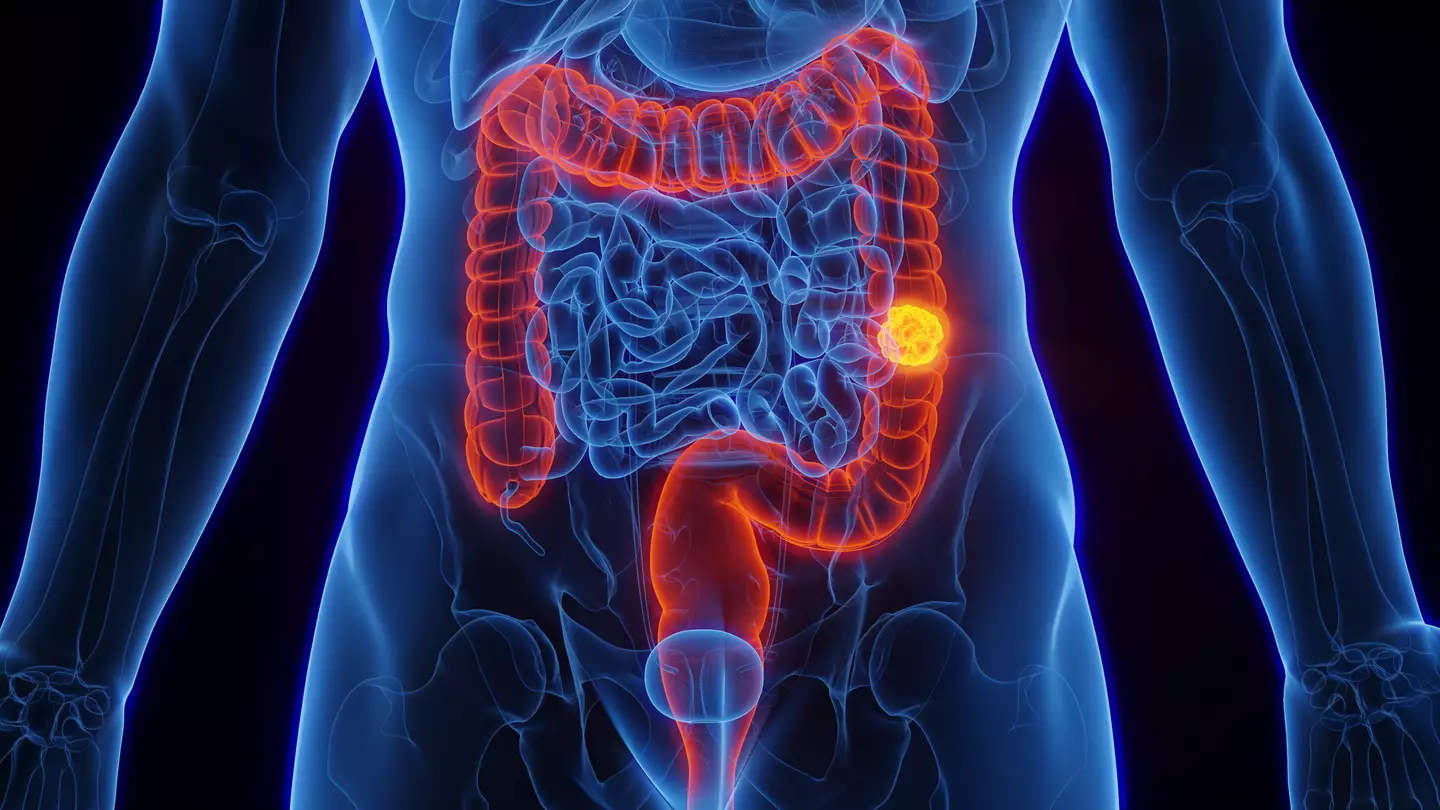
Warning: This article contains discussion of cancer which some readers may find distressing.
A ‘fit and healthy’ woman was shocked to be diagnosed with bowel cancer after spending years being mindful of her lifestyle.
But as a surgeon told the 39-year-old why it’s happening to people like her, she has issued warnings to help others reduce their risk.
Danni Duncan told her Instagram followers that she’d had a health MOT when a colonoscopy found a two-centimetre malignant tumour at the top of her bowel.
Advert
“It's not genetic, it's obviously not lifestyle,” the Aussie mum said. “The last four years I have eaten 80-90 percent whole foods, we use non toxic products at home, I don't drink much alcohol, exercise every day and eat a high fibre diet.”
But a doctor hypothesised that chemicals and carcinogens she was ‘exposed to in the 90s’ in her food had long-term effects, contributing to this cancer diagnosis.

What is bowel cancer?
One of the most common types of cancer in the UK, it is found anywhere in the large bowel, including the colon and rectum.
The large bowel is part of the digestive system, helping to absorb water from your food and remove food waste from your body.
The NHS encourages early bowel cancer screenings as it may mean it’s easier to treat.
What are the symptoms of bowel cancer?
According to the NHS, symptoms may include changes in your poo, needing to poor more or less often than usual or blood in your poo.
You may also find yourself feeling like you need to poo, even if you’ve just been to the toilet.
Other symptoms can include bleeding from your bottom, tummy pain, bloating, a lump in your tummy, losing weight without trying or feeling very tired or short of breath.
If you have any of the symptoms for three weeks or more, it is recommended you see a GP. And if your poo is black or dark red or you have bloody diarrhoea, you should ask for an urgent appointment or get help from NHS 111.
Or, if you’re bleeding non-stop from your bottom or there’s a lot of blood, you must go to A&E or call 999 immediately.

Ways to potentially reduce the risk of bowel cancer
Bowel Cancer UK explains that scientists believe around half of all bowel cancers could be prevented by having a healthier lifestyle.
Diet
The charity explains that improving diet can help reduce the risk. It encourages eating a healthy and balanced diet, stressing the importance of consuming enough fibre.
With adults recommended to aim for about 30g of fibre a day, it points out that you may need to increase the amount gradually to avoid wind, bloating and stomach cramps.
The charity also reminds people to keep hydrated, to eat their five portions of vegetables and fruit a day, to avoid processed meats and to consume protein.
Body weight
Bowel Cancer UK says that ‘being overweight or obese can increase your risk of bowel cancer’. Therefore, it encourages aiming for a healthy weight - it is important to speak to a GP if you have any health conditions before making big changes to your diet and lifestyle.

Physical activity
The charity says that those who are more physically active ‘have a lower risk’.
It encourages aiming for at least 30 minutes of physical activity five times a week and if you don’t do much to begin with, try out 10 minutes and gradually increase it.
“Remember, if you miss a few days, don't give up. You can start again tomorrow,” it adds. “If you’re very overweight, or have health problems, speak to your GP before beginning a weight management and exercise programme.”
Alcohol and smoking
Alcohol can damage cells that line the inside of the bowel, increasing the risk of cancer. So, to reduce the risk, it’s best not to drink alcohol. But if you do, cutting it down will also help reduce it.
The same goes for smoking, as those who smoke are more likely to develop non-cancerous growths in the bowel which can turn into cancer if untreated.
If you’ve been affected by any of these issues and want to speak to someone in confidence, contact Macmillan’s Cancer Support Line on 0808 808 00 00, 8am-8pm seven days a week.
Topics: Bowel cancer, Health, Cancer